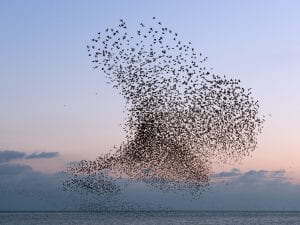Calling all writers and visual artists!
Expressions of interest are invited for two creative practitioners to engage with the University of Brighton Design Archives collections and facilitate a workshop for students from the Fine Art and Creative Writing programmes. The fee for the work is £250. The workshop will take place at the University of Brighton’s Grand Parade building in central Brighton on 16 March (details below)
Expression of interest: no more than 500 words in the form of a covering letter, with a CV, to Sue Breakell, Archive Director/Principal Research Fellow, University of Brighton Design Archives, s.m.breakell@brighton.ac.uk by 5pm on 18th February 2022
Creating, Curating and Consuming the archive:
an integrated frame for investigating diversity in Design Archives Collections and Practices
Strand 3: Consuming the Archive through Creative Practice
Workshop date: 16 March 2022, 9.30am-11.30pm
Project context
This project uses the creation, curation and consumption of archives as a frame for collaborative interdisciplinary work investigating racial and cultural diversity in the University of Brighton Design Archives (UoBDA) and its collections, developing paths to greater inclusivity. The project aims to use the UoBDA’s distinctive position as part of both the archive sector and higher education, to develop new understandings of the barriers that have limited the diversity of representation in the collection and its practices as a result of institutionalised privilege. Such privilege can lead to dominant narratives and the erasure of histories and experiences of difference communities such as the World Majority (Racially marginalised), LGBT+, Disabled and Working Class. The project aims to develop paths to greater inclusivity, more diverse perspectives on, and narratives from, its collections
The project’s integrated frame addresses the cumulative and inseparable stages in the life of an institutionalised collection which can manifest privilege through dominant narratives, and erase more representative histories and experiences.
Strand context
The strand ‘consuming the archive’ explores the potential of creative practice to open up new interpretations and narratives from UoBDA collections within the institution and by its audiences and stakeholders. It will look at materials documenting the exhibition Britain Can Make It (BCMI, 1946) to produce new creative writing and artworks. The imperialist underpinnings of BCMI, which was developed by the Council of Industrial Design as a national project, have been little discussed and are largely absent from its documentation. Facilitated by creative practitioners, and working alongside one another, students from the Fine Art BA and Creative Writing MA will make new work responding to the dominant narratives, gaps and silences of the archive and generating new insights and understandings of the material and its histories.
The aim of the session is for the student participants to produce new creative work and reflect on the process. Practitioners and students will also be invited to participate in a closing event for all the project strands.
Session brief
The workshop will be facilitated by two creative practitioners: a writer and a visual artist. The practitioners will select items from the online BCMI material in advance of the workshop. This will be selected as a personal creative response and also with a view to thinking how a younger generation of artists (BA Fine Art and MA Creative Writing students) might respond to them. The detail of the workshop session itself can be devised by the practitioner in consultation with course tutors (Jess Moriarty and Susan Diab) around/with/against the following as a guide:
- The creative practitioner facilitator will present their selection of works from the UoBDA ‘Britain Can Make It’ documents and describe reasons for choice, curate and re-display in any way they wish.
- Student participants, in pairs or small groups (depending on numbers) will respond to all or part of this selection with their own creative or curatorial reworkings.
- Participants will document their processes and contribute to group discussion
- Participants will develop this or another piece of work for presentation online as part of the project.




Leave a Reply